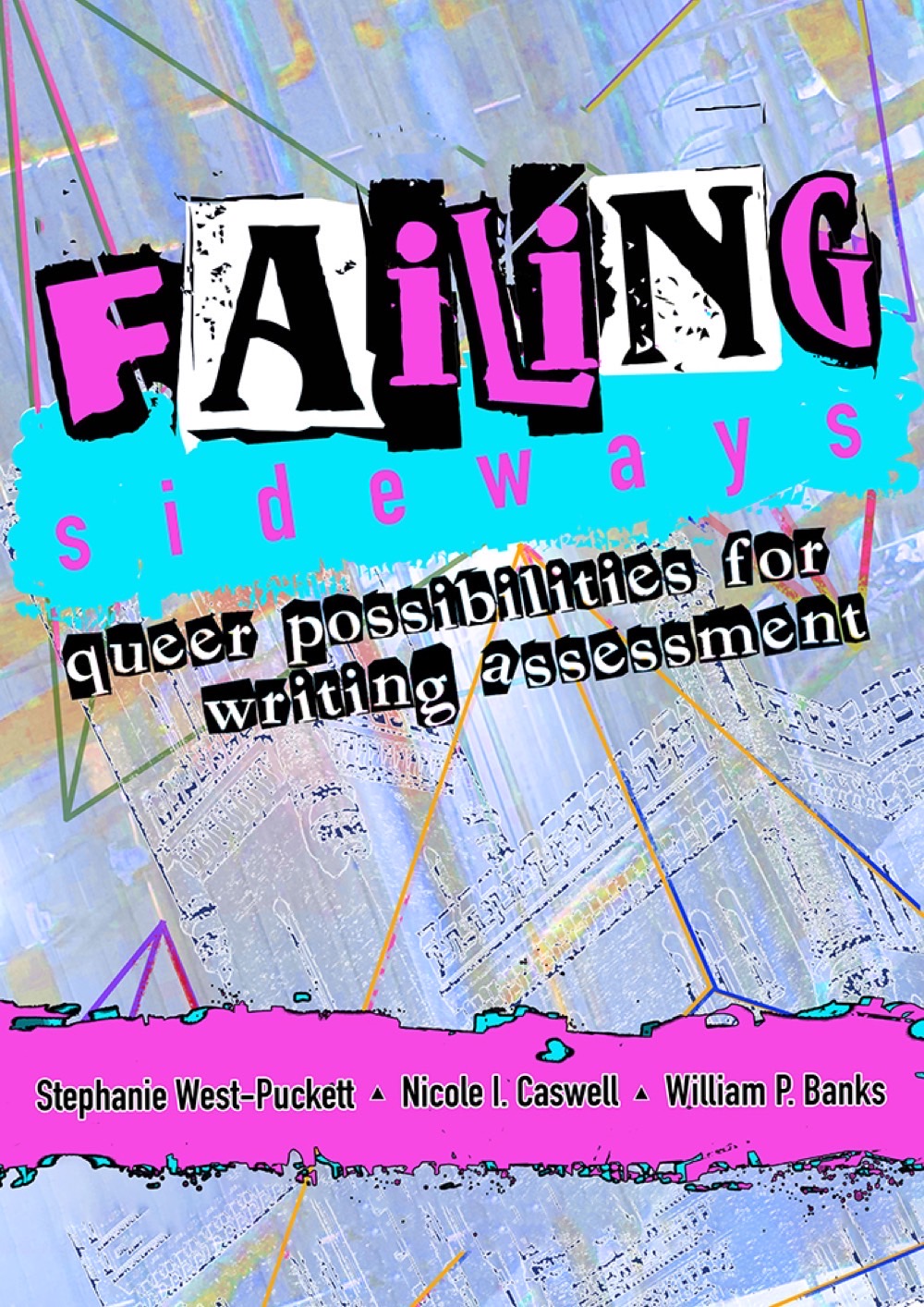Telling Stories
Perspectives on Longitudinal Writing Research
Accessibility Tools
Queer Possibilities for Writing Assessment

2024 CCCC Lavender Rhetorics Award for Excellence in Queer Scholarship
2024 CCCC Outstanding Book Award, Honorable Mention
2024 CCCC Advancement of Knowledge Award, Honorable Mention
“We now have a book of innovative approaches that can occur when students are placed at the center of all we know and do. Filled with intelligence, compassion, humor, and moral value, Failing Sideways is a landmark book that will influence those within and beyond writing studies, a book that will give readers joy and hope.”
—Norbert Elliot, New Jersey Institute of Technology
“Failing Sideways quite beautifully queers writing studies assessment research of the last fifty-plus years. This book will quickly shift entire disciplinary conversations by offering queer, sideways, and affective alternatives to normative assessment structures.”
—Travis Webster, Virginia Tech University
“West-Puckett, Caswell, and Banks offer readers writing that is engaging and clear, arguments that are thoughtful and well-supported, and practices that could change how institutions see writing and writing assessment. What they offer is exciting and empowering.”
—The Peer Review
"Given the current climate in education, it feels more important than ever that we find ways to productively push back, and this book provides a vital methodology for doing so."
—Peitho
"A useful framework for developing a new disposition towards assessment that centers the ever-changing needs of students....WPAs and writing instructors alike will find this book useful for considering how to rethink approaches to assessment."
—Journal of Writing Assessment
Failing Sideways is an innovative and fresh approach to assessment that intersects writing studies, educational measurement, and queer rhetorics. While valuing and representing the research, theory, and practice of assessment, authors Stephanie West-Puckett, Nicole I. Caswell, and William P. Banks demonstrate the ways that students, teachers, and other interested parties can find joy and justice in the work of assessment.
A failure-oriented assessment model unsettles some of the most common practices, like rubrics and portfolios, and challenges many deeply held assumptions about validity and reliability in order to ask what could happen if assessment was oriented toward possibility and potential. Working to engage a more capacious writing construct, the authors propose queer validity inquiry (QVI) as a model for assessment that values failure, affect, identity, and materiality. These overlapping lenses help teachers honor parts of writing and learning that writing studies faculty have struggled to hold onto in a world overly focused on quickness and efficiency in schools.
Through programmatic and classroom examples, Failing Sideways privileges what is valued in the classroom but traditionally ignored in assessments. Reimagining what matters in the teaching and learning of writing and using assessment data differently, this book demonstrates what writing can be and could do in a more diverse and just world.